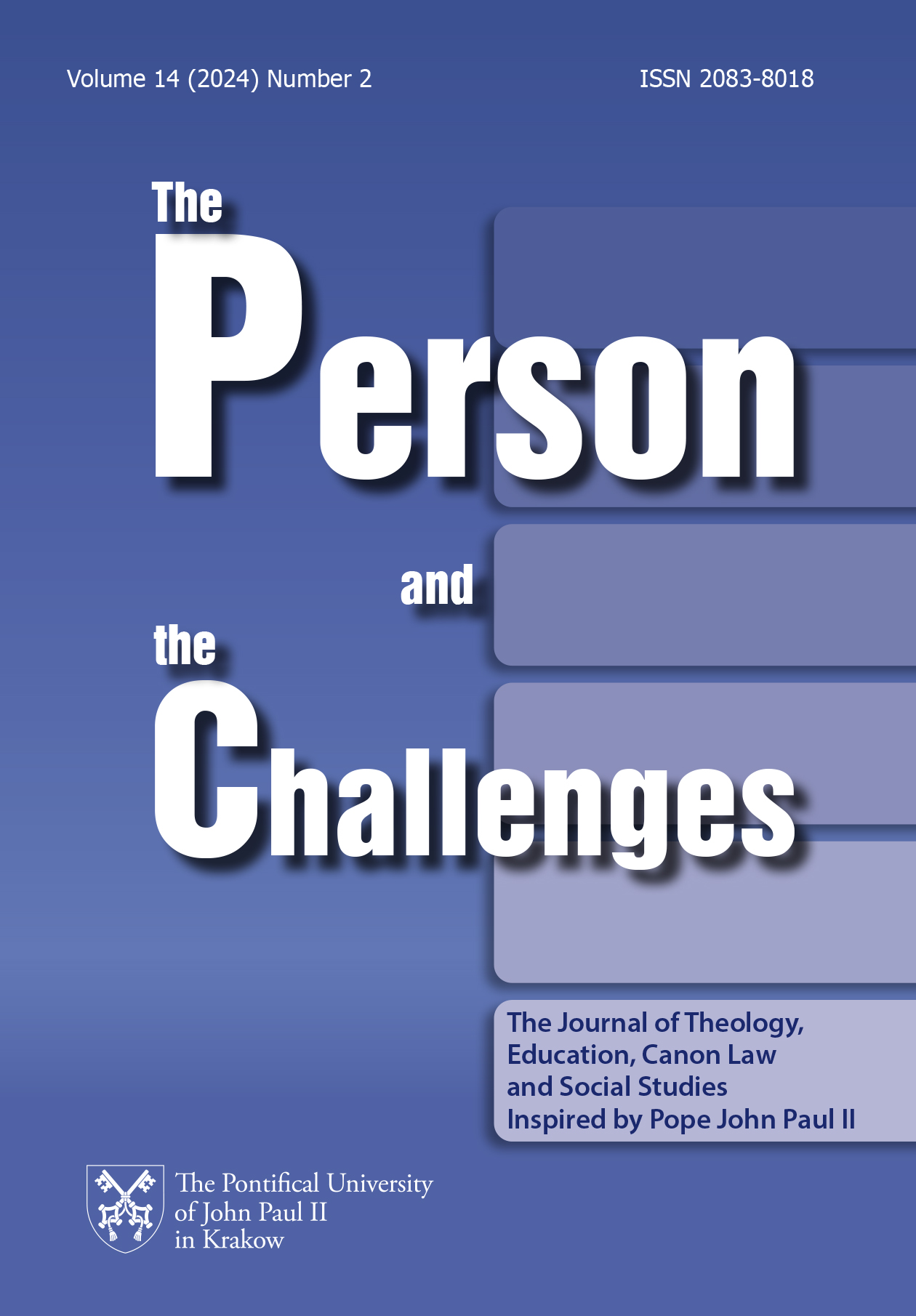Radio Free Europe’s Polish Broadcasting Service vis-à-vis the Millennium and Church - State Relations (1965-1966)
DOI:
https://doi.org/10.15633/pch.14218Keywords:
Millennium of the Christianisation of Poland, Radio Free Europe, church-state 1965-1966Abstract
This article presents an analysis of selected broadcasts by Radio Free Europe’s Polish Broadcasting Service on the 1966 celebration of the Millennium of the Christianisation of Poland, against the background of the relationship between the Church and state. The source material consists of programmes available online on the Radio Liberty website and articles published in the monthly magazine Na Antenie/On Air from 1965 to 1966. The author's intention is to show the role and meaning of radio broadcasts vis-à-vis the Millennium Poloniae celebrations, which were of a religious and political nature. The radio station, under the direction of Jan Nowak-Jeziorański, defended the authority of Primate Stefan Wyszyński against communist propaganda, while serving as the only source of information for audiences in the country with respect to the Novena initiated in 1956, which culminated in the Millennium. Aside from RFE’s political objectives, the broadcasts served to counter the propaganda and the campaign against the Church and to break the media monopoly in the People’s Republic of Poland. Having a formative and integrative character, they also contributed to the preservation of the listeners’ religious identity.
References
Borzym A., Sadowski J. (eds.), Radio Wolna Europa w polityce polskiej i zachodniej, SWS, Warsaw 2009.
Czaczkowska E.K., Audycje Rozgłośni Polskiej Radia Wolna Europa o ks. Jerzym Popiełuszce od porwania do pogrzebu (19 X–3 XI 1984 roku), „Kultura, Media, Teologia” (2021), No 46, pp. 96–115.
Gawlikowski L., Pracownicy Radia Wolna Europa, PAN, Warsaw 2015.
Grabowska A. (ed.), Wspomnienia pracowników Rozgłośni Radia Wolna Europa, Rytm, Warsaw 2002.
Habielski R., Machcewicz P., Rozgłośnia Polska Radia Wolna Europa w latach 1950–1975, t. 1, Wyd. Ossolineum, Wrocław 2018.
Habielski R., Audycje historyczne i kulturalne Rozgłośni Polskiej Radia Wolna Europa w latach 1952–1975, Wyd. Ossolineum, Wrocław 2019.
Johnson Ross A., Radio Wolna Europa i Radio Swoboda. Lata CIA i późniejsze, Kolegium Europy Wschodniej im. J. Nowaka-Jeziorańskiego, Wrocław 2014.
Kamińska-Chełmniak K., Adam Ciołkosz i Radio Wolna Europa w świetle jego korespondencji z Janem Nowakiem-Jeziorańskim, „Studia Medioznawcze” (2018), No 3, pp. 151–159.
Knyspel-Kopeć R., „Nie my prosimy o wybaczenie”. PZPR wobec jubileuszu milenijnego w akcji propagandowej przeciwko „Orędziu” biskupów polskich w świetle „Głosu Koszalińskiego”, in: S. Ligarski, R. Łatka (eds.), Oficjalna prasa w PRL, IPN, Szczecin–Warsaw 2020, pp. 323–336.
Kristanova E., Pontyfikat Jana Pawła II w programie Rozgłośni Polskiej RWE, „Journal of Modern Science” (2024), No 2, pp. 134–154.
Kristanova E., The Religious Broadcasts of Rev. Tadeusz Kirschke for Radio Free Europe’s Broadcasting Service, in: Politics and the Media in Poland from the 19th to the 21st Centuries. Selected Issues, eds. by E. Kristanova, R. Habielski, M. Such-Pyrgiel, Brill, Leiden — Boston 2024, pp. 115–128.
Micewski A., Kościół — Państwo 1945–1989, WSziP, Warsaw 1994.
Machcewicz P., Operacja „Olcha”. Władysław Bartoszewski, Radio Wolna Europa i Służba Bezpieczeństwa, „Pamięć i Sprawiedliwość” (2006), No 2, pp. 115–142.
Mazur M., Polityczne kampanie prasowe w okresie rządów Władysława Gomułki, LTN, Lublin 2004.
Moczkodan R., „Na Antenie” i „Wiadomości”: okoliczności rozpoczęcia i zakończenia współpracy, „Archiwum Emigracji. Studia — Szkice — Dokumenty” (2015), No 1/2, pp. 47–76.
Noszczak B., Antymilenium. Konflikt państwa z Kościołem, IPN, Warszawa 2020.
Noszczak B., Nobel za Orędzie? List o. Stanisława Wawryna SJ do prymasa Stefana Wyszyńskiego w sprawie możliwości przyznania Episkopatowi Polski Pokojowej Nagrody Nobla za wystosowanie Orędzia do biskupów niemieckich, „Pamięć i Sprawiedliwość” (2017), No 30, pp. 482–492.
Nowak-Jeziorański J., Wojna w eterze, Znak, Kraków 2006.
Nowak-Jeziorański J., Winowska M., Korespondencja 1955–1989, ZN im. Ossolińskich, Wrocław 2016.
Puddington A., Rozgłośnie wolności. Triumf Radia Wolna Europa i Radia Swoboda w zimnej wojnie, WN UMK, Toruń 2009.
Radia Wolności https://www.polskieradio.pl/68,radia-wolnosci 1965–1991 (03.02.2024).
Szwacha P., Tematyka wsi i ruchu ludowego na antenie Rozgłośni Polskiej Radia Wolna Europa–zarys problematyki, in: E. Jaska, P. Wiench (eds.), Media o wsi. Media na wsi, SGGW, Warsaw 2017, pp. 81–91.
Tatarowski K.W., Literatura i pisarze w programie Rozgłośni Polskiej Radio Wolna Europa, Universitas, Kraków 2005.
Trudzik A., Między Wspólnym Rynkiem a Wspólnotą Brytyjską — Wielka Brytania w „Kalejdoskopie” emitowanym na falach RWE (1960–1966), „Studia Europaea Gnesnensia” (2010), No 1–2, pp. 95–117.
Weigel G., Świadek nadziei, Znak, Kraków 2012.
Wejs-Milewska V., Radio Wolna Europa na emigracyjnych szlakach pisarzy: Gustaw Herling-Grudziński, Tadeusz Nowakowski, Roman Palester, Czesław Straszewicz, Tymon Terlecki, Arcana, Kraków 2007.
Wejs-Milewska V., Wykluczeni — wychodźstwo, kraj. Studia z antropologii emigracji polskiej XX wieku (idee, osobowości, instytucje), Wyd. UwB, Białystok 2012.
Wielopolska-Szymura M., Rozgłośnie BBC World Service, Radio France Internationale i Voice of America w komunikowaniu międzynarodowym. Od propagandy do dyplomacji publicznej, Wyd. UŚ, Katowice 2019.
Zamorski K., Pod anteną Radia Wolna Europa, Wers, Poznań 1995.
Żaryn J., Państwo — Kościół katolicki w Polsce 1956–1989. Wybrane zagadnienia, Bellona, Warszawa 2010.
Downloads
Published
Issue
Section
License
Copyright (c) 2024 Evelina Kristanova

This work is licensed under a Creative Commons Attribution 4.0 International License.
Authors who publish with this journal agree to the following terms:
- Authors retain the copyright and full publishing rights without restrictions, and grant the journal right of first publication with the work simultaneously licensed under a Creative Commons Attribution 4.0 International License that allows others to share the work with an acknowledgement of the work's authorship and initial publication in this journal.
- Authors are able to enter into separate, additional contractual arrangements for the non-exclusive distribution of the journal's published version of the work (e.g., post it to an institutional repository or publish it in a book), with an acknowledgement of its initial publication in this journal.
- Authors are permitted and encouraged to post their work online (e.g., in institutional repositories or on their website) prior to and during the submission process, as it can lead to productive exchanges, as well as earlier and greater citation of published work (See The Effect of Open Access).

